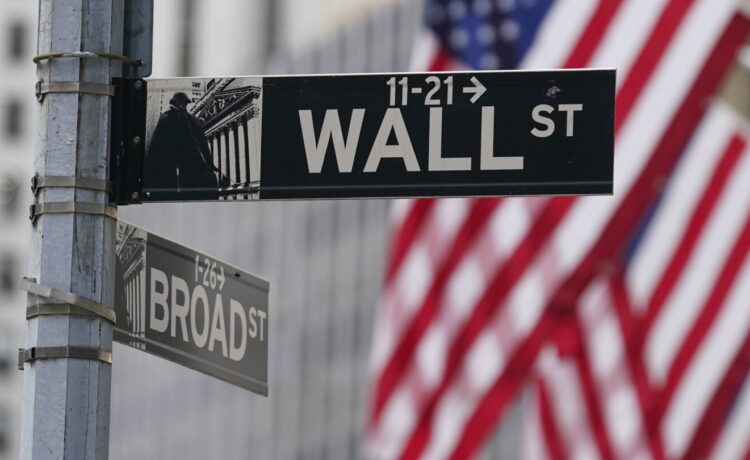U.S. stocks are drifting around their records Thursday following a mixed batch of data on the economy.
The S&P 500 was 0.1% higher in early trading. The Dow Jones Industrial Average was up 39 points, or 0.1%, as of 9:35 a.m. Eastern time, and the Nasdaq composite was 0.2% higher.
Treasury yields rose in the bond market after a report showed inflation was a touch hotter at the wholesale level last month than economists expected. It’s the latest in a string of data on inflation that’s been worse than forecast, which has kept the door closed on earlier hopes that the Federal Reserve could start cutting interest rates this month.
But other reports released in the morning showed some softening in the economy, which kept alive hopes that the long-term trend for inflation remains downward.
Traders are still largely expecting the Fed to begin cutting rates in June, according to data from CME Group. The Fed’s main rate is at its highest level since 2001 in hopes of grinding down inflation, and cuts would relieve pressure on the economy and financial system.
The question hanging over Wall Street is whether the latest signals of potentially stubborn inflation will ultimately mean more delays to forecasts for rate cuts. That in turn could damage the huge run U.S. stocks have been on since late October, rising in 16 of the last 19 weeks.
“So far, the market has shrugged off concerns about stubborn inflation and a cautious Fed,” said Chris Larkin, managing director, trading and investing, at E-Trade from Morgan Stanley.
But the mix of data could push the Federal Reserve to signal it foresees only two cuts to rates this year, down from three, according to Brian Jacobsen, chief economist at Annex Wealth Management.
One report on Thursday said shoppers spent less at U.S. retailers last month than economists expected. Such data could remove some upward pressure on inflation.
The government also said retail sales in January were weaker than earlier thought. Earlier, strong spending by U.S. households was one of the linchpins keeping the economy out of a recession despite the drag of high interest rates.
A separate report said fewer U.S. workers applied for unemployment benefits last week than expected. That’s good news for workers genearlly. But too much strength in the job market, which has remained remarkably resilient, could add upward pressure on inflation.
The mix of data sent the yield on the 10-year Treasury up to 4.25% from 4.19% late Wednesday. The two-year yield, which more closely tracks expectations for the Fed, rose to 4.67% from 4.63%.
On Wall Street, Dollar General rose 2.2% after reporting stronger profit and revenue for the latest quarter than expected. The retailer said it saw increased traffic at stores, and it gave a forecast for sales this upcoming year that topped analysts’ estimates.
A day earlier, rival Dollar Tree tumbled after reporting weaker-than-expected results and saying it would close hundreds of its Family Dollar stores.
Dick’s Sporting Goods jumped 15.6% after it reported stronger profit for the latest quarter than expected and increased its dividend.
On the losing end of Wall Street was U.S. Steel, which dropped 4.3%. President Joe Biden is coming out against the planned sale of the company to Nippon Steel of Japan.
Nippon Steel announced in December that it planned to buy the Pittsburgh-based steel producer for $14.1 billion in cash, raising concerns about what the transaction could mean for unionized workers, supply chains and U.S. national security.
Shares of Anheuser-Busch InBev trading in the United States slumped 4.8% after Altria said it was selling a portion of its stake in the maker of Budweiser. Altria is offering up 35 million of its 197 million ABI shares.
In stock markets abroad, indexes were mixed across Europe and Asia.
Japan’s Nikkei 225 rose 0.3%, as speculation rises that the Bank of Japan may soon end its policy to keep interest rates below zero.
___
AP Business Writers Yuri Kageyama and Matt Ott contributed.














